#dayangku zyana
Explore tagged Tumblr posts
Text
haha, thanks to Dev Patel namedropping Reva Marchellin, i found an interview with the three trans women cast in monkey man, as well as a bit of discussion on the casting of non-Indian women, as well as casting cis men to do the stunts/fill out the space
(this interview was only published yesterday, will do some more sleuthing to see if Pehan Abdul, Reva Marchellin and Dayangku Zyana have been given the opportunity to do more)
149 notes
·
View notes
Text
Violence and Love in Monkey Man

Dev Patel's Monkey Man has played at my mind for two weeks now. This is for reasons that I'm able to articulate and for many that I probably have not yet been able to find the words for. This post is, in part, my attempt at sorting through some of my thoughts. My tumblr is all spoilers all the time. If you don’t want that, then please don’t read on.
Violence
Like most places in the world, systemic violence is a scourge in India. Monkey Man does not shy away from this reality and depicts Hindu nationalist state violence and violence against women and gendered minorities in the country to chilling effect.
We come to see this in the brutal rape and murder of Kid's activist mother at the hands of the police, while she tries to shield her child and her land from police and state terror. We see it in the treatment of (largely femme-presenting) sex workers in the two brothels featured in the film, including one frequented by the police and political elite. We see it in the violence and ostracisation meted out against the hijra, or third gender community by individual actors and the state more broadly. We see it in the state-orchestrated razing of an entire community after the land on which it sits is declared a "holy site". We see it in the movement of people from the regions to the city after their land has been stolen and the grinding poverty they face as a result.

Unlike so many action films, none of the violence in Monkey Man occurs in a vacuum. Even Kid's original means of making money in an underground fighting ring is done against the backdrop of his forced displacement from regional India to the city - a migration pathway that many in the country have been forced to take and which is a direct result of land theft and resource extraction in the regions by local and multinational corporations as well as federal and state governments.
The truth is that so much in relation to state and societal control is enacted in painful and violent ways on the bodies of the marginalised and oppressed. And I often think about how the horror and action genres are some of the best suited to speak about systemic injustice because of their capacity to make that violence uncompromisingly visible (one recent example is Mike Flanagan’s Midnight Mass which depicted the bloody fallout of the Christian missionary/colonial project in vivid crimson, splashed all over a non-descript maritime town in present-day America). The violence in Monkey Man is no different.
While Kid's realisation of the interconnectedness and heavy hand of the state not just in the violence experienced by his mother, but also by the hijra, and by sex workers like Sita comes later in the movie, we as the audience are given this insight earlier. Recall Kid pointing out to Sita that her tattoo is of a koel, not a sparrow as originally misidentified by the Australian client sexually assaulting her minutes earlier in the film.
Kid goes on to say that he grew up in the forest and woke up to koels singing everyday. Its the longest conversation that the two have but in those brief words, we understand that Sita too has likely been displaced to the city from the regions, probably under very similar circumstances to Kid. The way this displacement maps itself onto her body is distinctive to how it does so for Kid, with gender playing a large role in this.

Other factors like caste, class and religion also impact on how the characters in this film experience or perpetrate violence. I would write more on these intersections but then this post is going to get more unwieldy than it already is.
I will say though, that in India, where fascist Hindu nationalism is being used by government to harm minority communities, steal land and secure populist votes, Patel makes a distinction between revelatory and weaponised faith. Kid is raised in peace by his mother with the former, but as an adult he lives in a world where the latter has taken hold and is being used by those in power to shore up more of that power for themselves.
For me - as the descendant of parents, grandparents and great grandparents who lived through anti-Tamil pogroms led by Sinhalese chauvinists weaponising Buddhism as part of their fascism in Sri Lanka, who like the rest of us, is living in an election year for Hindu nationalist Prime Minister Narendra Modi in India, and who is also frustratingly, helplessly bearing witness as the state of Israel and it’s allies conflate Zionism with Judaism in defence of the genocide being waged against Palestinians - watching this action film make the distinction between revelatory and weaponised faith was profound.
Love
Patel makes it a point in this film to show how Kid's most nourishing relationships, the ones that sustain him - indeed the ones that literally save his life - are those that he has with women and with people who don’t conform to the gender binary. In doing this, we see what Kid is fighting tooth (quite literally) and nail for throughout the film. We see what is at stake - what we stand to lose - if perpetrators get to rule without accountability.
Its also no mistake that these relationships are all tied visually to the natural world in the film: Kid's mother's deep ties to the earth, rivers, trees and roots that she leads him through as a child. Alpha and the hijra's sanctuary, the Ardhanareeshvara temple with its most sacred space being the roots of a holy tree. Sita and her koel tattoo: the memory of the forest carried on her skin while she traverses the brutal reality of the city. Patel is making a point here too. About nourishment of another kind, through our connection with the earth instead of extraction from it. The visuals in the film drive this point home, particularly when contrasted with the industrialisation and poverty of the city.
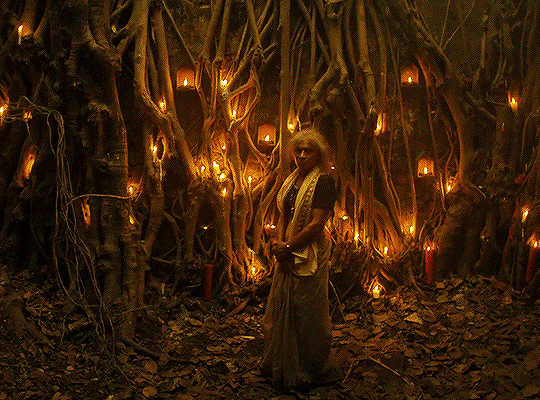
Two particular loving relationships that stood out for me were the love shared between Kid and the hijra community as well as between him and his mother.
Alpha, hijra Elder and the hijra community
Keeper of the Ardhanareeshvara Temple and hijra Elder, Alpha becomes a mother-figure to Kid after he is rescued with near-fatal injuries. It is Alpha who keeps watch over him as he recovers, helps Kid to confront the totality of his past memories which his trauma has kept fragmented, and who ultimately leads a veritable hijra army to join forces with him to assassinate some fascists.
Alpha's gentleness with Kid was so moving to see, in particular during the conversation they have about his attempt as a child to save his mother from the fire set by her rapist and murderer. That exchange moved me to tears.
Kid: I failed her.
Alpha: No. You tried to save her. You see scars. I see the courage of a child fighting to save his mother.

The wider hijra community at the temple also take Kid in and care for him during his recovery. Truly, the scenes at the temple were some of my favourite in Monkey Man. Outside of his memories of his mother, they are the only scenes where we see love, peace and joy on the faces of any of the characters in this film.

Also witness this moment of delight below as the hijra at the temple appreciate a fine ass man channelling his righteous anger and fucking up a punching bag full of rice. I note that the music during this training montage is simply stunning. Ustad Zakir Hussain's rapid fire tablas punctuated by each of Patel's landed punches and kicks and then followed by Jed Kurzel's achingly soaring instrumentals (listen to "The Kid" from the movie's score) were just *chef’s kiss*.

Another favourite moment for me was when Kid decides to go back to the underground fight ring one last time and not throw his matches (as he had been doing prior). He bets on himself and when he inevitably wins his fights, he takes the money and gives it to the hijra, ensuring that they can continue to live at the temple without fear of being evicted. We love to see a man who literally pays his rent.
Neela, his mother
Kid’s first teacher and the center of his life as a child. In almost every memory we are shown of her, Kid remembers his mother walking through a forest, sharing her ecological and religious knowledge with him and in doing so, positioning him within the wider world.

GIF by dailyflicks
We watch as he takes this understanding with him forward through the remainder of the film. His conversation as an adult with Alphonso as they drive through the city in the latter's tuk tuk is emblematic of this. "They don't even see us", Kid says of the elite who frequent the club where he has just gained employment, "they're all up there living and we are stuck in this."
His mother showed him what it was to live: to be still and in concert with the world and the Divine around you, to be loved fiercely, and to thrive as a result. This is in stark contrast to what Kid has had to learn to do in the city: to survive, to merely exist. He is never depicted resting or at home as an adult. He's always working, hustling and planning for the next thing, his next step. When he loses his village, his land and his mother as a child, Kid also inevitably loses his sense of home. It’s no coincidence that the tracks “Home” and “Mother” on the movie’s score sound almost identical.
Later at the end of the film, we see Kid close his eyes, having done what he set out to do. The last thing he sees is his mother, smiling at him in the forest. Her face is the face of God he gazes at before he succumbs to his injuries. This devotion to his mother is not just that of a child to a parent. Its also deeply tied to his Hindu faith which calls on its followers to honour the Divine Mother, the supreme feminine energy, Aathi Parashakthi, in all her manifestations including in those who mother us.
The movie ends with Kid’s deep, revelatory faith - instilled in him by his mother - and with the death of the man who weaponised that faith for power and wealth. It left all of us in the cinema seated in stunned silence even as the credits began to roll.

To describe Monkey Man as simply a revenge film does it an absolute disservice. This is not revenge. It is defence borne out of deep love for community and righteous opposition to injustice. Seeing hijra warriors dressed as Kali, the goddess of destruction, dealing death blows against fascists while spinning in the most beautiful lenghas was exhilarating (I literally screamed “YESSSSSSS!” at the screen when they arrived). Seeing Sita take out pimp and sex trafficker Queenie got me cackling and yelling “whoooop!”. Seeing Kid, a masculine character act to defend women and people outside of the gender binary, from further systemic harm without any ulterior motive was absolutely unreal to witness on the big screen. Seeing a person of faith act in deep connection to that faith without judgment against anyone but those who perpetrate harm made me feel hopeful in a way that took me by surprise. Kid acted out of love and respect. I would argue that Sita, the hijra and Kid all acted out of recognition of a shared humanity.
And at a time when folks from marginalised communities are being subjected to horrendous violence worldwide, both interpersonal and systemic, watching the oppressed take their perpetrators out…and I mean out (see: a rapist and murderer getting bludgeoned to death with a glittery high heel and a fascist, self-proclaimed “holy man” being stabbed in his third eye by the blade he hid in his own “sacred” pathankal/paduka), well, it was cathartic to see.
Am I saying violence is the answer to systemic violence? I think the answer to that question is context-specific. Non-violent resistance has a place, but it’s by necessity a performance and requires an audience. What do you do when no one’s watching? What do you do when the people who are watching are doing nothing to stop your suffering? What then? These questions are what many liberals refuse to grapple with because the answers are too uncomfortable for their polite sensibilities. But if you keep your foot on someone's neck long enough, you should expect them to fight back, by any means necessary. In Monkey Man, we have an action film where we get to witness that resistance in all its visceral glory.
#monkey man#dev patel#jordan peele#vipin sharma#adithi kalkunte#sobhita dhulipala#reva marchellin#dayangku zyana#this post is so fucking long but this movie has been sitting on my heart and my chest for days
131 notes
·
View notes
Text
Loved this scene so much…the call and response between Kid’s punches and Ustad Zakir Hussain on tablas, the hooting and hollering from the Hijra crew when Kid took off his shirt and his bashful smile when he catches sight of them, and most of all the encouragement on Hijra Elder Alpha’s face when they move up to get a closer look at Kid on the way to his purpose.


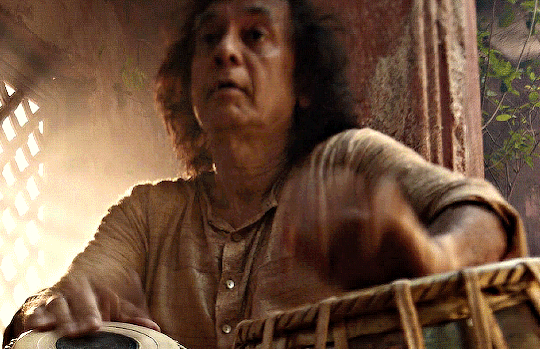

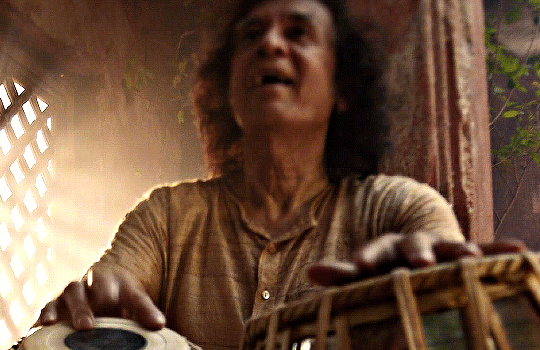


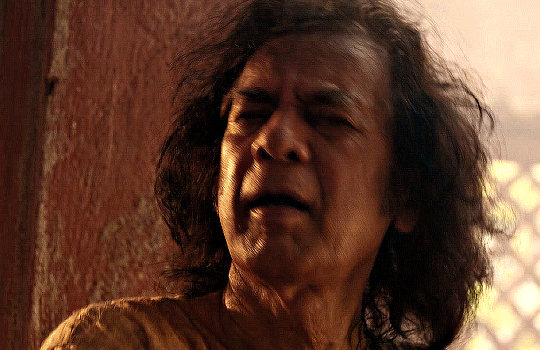



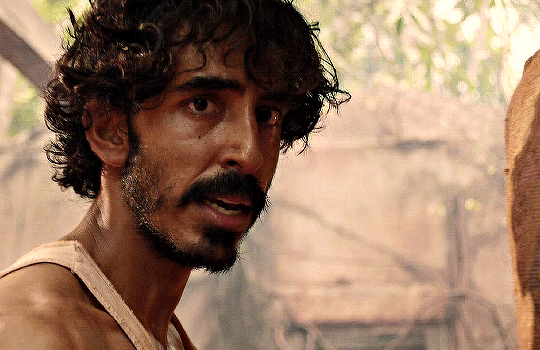
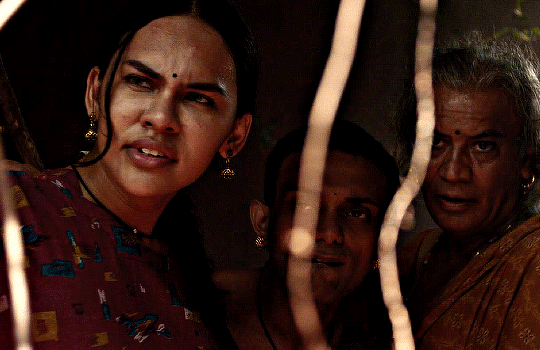


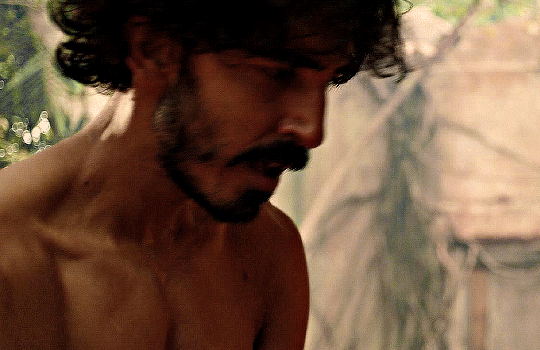
MONKEY MAN 2024, dir. Dev Patel
2K notes
·
View notes
Text
Dev Patel being an ally to the Hijra & trans communities & making the point to include them in his directorial debut is both the bare minimum & like a drug to me 🤕🩷



Dev Patel & Reva Marchellin .. don't know who's prettier 😖😖😖😖🩷🩷🩷🩷🩷
#dev patel#reva marchellin#dayangku zyana#pehan abdul#agus maulana#keren subramany#quaraish attamini#sorry i didn't get all the names!#upl#favx#lgbt
22 notes
·
View notes